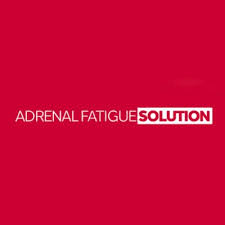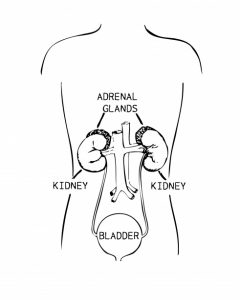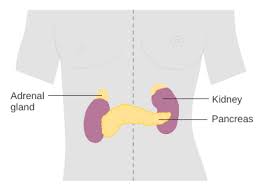What Is Adrenal Fatigue
Video Link: https://vimeo.com/184565115
Video Download: What Is Adrenal Fatigue
Video Stream: What Is Adrenal Fatigue
What is Adrenal Fatigue, and How Does It Impact Physical and Mental Health?
Adrenal Fatigue is a medical condition that occurs when the body's ability to produce adrenal hormones is suppressed, preventing the body from functioning optimally.
The body has a limited ability to produce certain hormones over time. If the body produces too many certain hormones over an extended period of time, it can sometimes no longer meet the needs of the body.
What Causes Adrenal Fatigue?
Adrenal Fatigue has many causes, and most are related to any issue which chronically puts physiological stress upon the body. High levels of psychological stress can lead to Adrenal Fatigue, as well as constant stress over a long period of time.
Adrenal Fatigue can also occur due to physical stress from various sources, including pneumonia, bronchitis, the flu, and chronic infections. Respiratory System infections are more likely to lead to Adrenal Fatigue than other forms of infection.
System infections are more likely to lead to Adrenal Fatigue than other forms of infection.
Exhausted Adrenal Glands cause Adrenal Fatigue.
The primary symptom of Adrenal Fatigue is the reduced function of the Adrenal Glands that do not see improvement, even with sufficient rest. Adrenal Fatigue is a complex condition that is associated with a number of different disorders. Think of it as a symptom of other issues causing problems for the body or mind.
Adrenal Fatigue often goes undiagnosed, and people often mistake the symptoms of Adrenal Fatigue for psychological symptoms such as mild depression, exhaustion, or a general lack of well-being.
People with Adrenal Fatigue will often try to self-medicate their condition subconsciously by drinking a lot of cola or coffee or using stimulants to keep themselves energized enough to get by.
What Are Other Terms for Adrenal Fatigue?
Over the course of the 20th Century, Adrenal Fatigue has gone by a number of names, including Adrenal Apathy, Adrenal Neurasthenia, Neurasthenia, Sub-Clinical Hypoadrenia, and Non-Addison's Hypoadrenia.
Millions suffer from Adrenal Fatigue in the United States and across the globe. Still, the condition is not distinctly considered a medical syndrome by most medical groups and is simply considered a collection of connected symptoms.
How Can Adrenal Fatigue Impact My Life?
Adrenal Fatigue can significantly impact both your health and your general sense of well-being. Although the excess production of Adrenal Hormones such as Cortisol can have detrimental impacts on your health and wellness, so can too little of these hormones.
Adrenal Hormones activate your body, getting you ready to seize the day, but they are not intended to remain at high levels 24/7.
Adrenal Hormone Production also spikes when you reach an impasse where your body activates the fight-or-flight response, helping you make split-second decisions that could benefit you or even save your life.
Obviously, nature never intended for Adrenal Hormones like Cortisol to remain at elevated levels for an extended period of time, and your Adrenal Glands eventually wear down. They can lose their ability to produce enough of these hormones when they are actually needed.
 In the case of severe Adrenal Fatigue, it can become difficult to even rouse yourself from bed for more than a brief period each and every day.
In the case of severe Adrenal Fatigue, it can become difficult to even rouse yourself from bed for more than a brief period each and every day.
Adrenal Fatigue is a condition that can increase in severity over time, causing the symptoms to become more problematic. Diminished Adrenal Hormones impact every system of your body, and this affects the core functions of your body.
It can diminish your libido, strain your cardiovascular system, affect electrolyte and fluid balance, slow down protein synthesis and cause you to gain weight more quickly. It can also lead to diabetes and other conditions related to carbohydrate balance.
When your body doesn't produce enough Adrenal Hormones, your various systems and organs must adapt to this biological change and function at a sub-optimal level. Your body can function in a state of Adrenal Fatigue, but health will deteriorate in a number of different ways at the same time.
What Is the Underlying Cause of Adrenal Fatigue?
The definition of Adrenal Fatigue is quite simple, even though its causes are quite complex. Adrenal Fatigue simply means that the body is no longer producing enough Adrenal Hormones to keep up with the stress signaling of the body.
If stressors are controlled, the body can boost Adrenal Function and regain Adrenal Hormone Balance, restoring the body to an enhanced state of Homeostasis.
The Adrenal Glands are responsible for responding to all forms of stress, whether psychological, emotional, or physical. When the Adrenal Glands activate, it leads to a cascade of hormonal changes, which improve the body's ability to manage stress.
Among the functions that are influenced by increased Adrenal Hormones are muscle tone, heart rate, immunity, and metabolism.
As we said, Cortisol and other Adrenal Hormones are activated under all forms of stress, whether defending yourself in a fight, mourning the loss of a loved one, fighting the flu, or worrying about your job. If the amount of stress you experience is overwhelming, you will start to tax your Adrenal System and have physiological issues related to Adrenal Fatigue.
In a state of Adrenal Fatigue, you can still produce Adrenal Hormones, just not as much as your body needs to preserve normal function. Over-stimulation negatively impacts your Adrenal Health, leading to Hormone Imbalance which negatively impacts your health.
Adrenal Fatigue can be caused by chronic stress or single events that strain your body or mind tremendously.
Who Is Most Likely to Experience Adrenal Fatigue?
Adrenal Fatigue is a condition that can affect anyone at any age. This condition is a stimulus-response at its core, and it doesn't matter how healthy you are; psychological stress and illness can put the weight of Adrenal Fatigue on your shoulders. Our Adrenal Glands have a limited capacity at any age or health state.
Although Adrenal Fatigue can happen to anyone, there are a number of environmental factors that can increase the risk of Adrenal Fatigue, including:
High Levels of Pressure and Expectation
Poor Sleep
Drug Abuse
Alcohol Abuse
Poor Nutrition
Infection-fighting
Chronic Illness
Relationship Stress
Personal Stress
Pregnancy
How Prevalent is Adrenal Fatigue?
Because Adrenal Fatigue isn't clinically recognized as a unique disorder and is usually lumped in with other medical conditions, there is insufficient data to say exactly how many people today suffer from the condition. However, it can safely be considered to be at least somewhat familiar, if not more so.
In the late 1960s, a physician named Dr. John Tinterra was an Adrenal Specialist who was clinically active in treating diminished Adrenal Function. He explained that, in the late 1960s, more than one in seven people were struggling with severe Adrenal Fatigue.
However, many people were dealing with at least minor issues related to Inhibited Cortisol Production.
How Do I Know If I am Suffering From Adrenal Fatigue?
There are a number of symptoms associated with Adrenal Fatigue. Because Adrenal Fatigue is a complex disorder, the collection of symptoms indicates the condition, rather than any particular, single symptom. Answer the following questions:
Do you feel exhausted with no apparent cause?
Is it hard to rouse yourself from bed, even when you got adequate sleep the night before?
Do you have trouble recovering from illness or stress?
Do you frequently crave sweets and salty foods?
Do your energy levels peak during the late evening?
Suppose you answered Yes to more than one of these questions. In that case, there is a significant chance that you may suffer from Adrenal Fatigue. You could greatly benefit from seeing a qualified, licensed medical professional regarding your health and hormone balance.
What Are Some Medical Conditions Commonly Related to Adrenal Fatigue?
Any medical issue that causes high physiological stress levels can lead to Adrenal Fatigue. Patients experiencing chronic medical issues such as cancer or arthritis are particularly susceptible to depleted Adrenal Glands function.
Suppose you are suffering from a chronic medical condition and find it very difficult to get up and about. In that case, there is very likely that Adrenal Fatigue is affecting your energy levels.
Some medications can suppress adrenal activity, such as corticosteroids. Corticosteroids are synthetic hormones that imitate the function of the Adrenal Hormones, and the body will produce less of its own Cortisol and other hormones as a direct result.
They are generally prescribed when the body is not producing sufficient Adrenal Response, but once treatment has been suspended, it can lead to symptoms of Adrenal Fatigue.
Adrenal Fatigue and Human Growth Hormone
Adrenal Fatigue can lead to HGH Deficiency if left untreated. The body primarily produces Natural Human Growth Hormone during sleep and intense physical activity. Because Adrenal Fatigue can sap the body of energy, it is no longer as simple of an endeavor to go out and get sufficient exercise.
Also, Adrenal Fatigue has a tremendous impact on sleep quality, often preventing sufferers from reaching the deep phases of sleep necessary to encourage sufficient HGH Production.
For Patients suffering from HGH Deficiency or Hypopituitarism, Injectable HGH can alleviate the effects of the condition and improve Adrenal Balance, improving overall health.
Adrenal Fatigue and Testosterone in Men
Adrenal Fatigue is associated with a number of symptoms that can contribute to Low Testosterone. Clinical research shows that men who experience  Adrenal Fatigue are more likely to suffer from Testosterone Deficiency.
Adrenal Fatigue are more likely to suffer from Testosterone Deficiency.
This is because Cortisol and Testosterone are both steroid hormones and are both built from the same ingredients. If the body has been producing high levels of Cortisol, then the body no longer has enough raw ingredients to produce a sufficient amount of Testosterone to meet the needs of the body.
Testosterone Deficiency exacerbates the symptoms of Adrenal Fatigue, and the opposite is also true. This can lead to drastic changes in metabolism, leading to weight gain and muscle atrophy while making fatigue even more pronounced.
This can also affect sexual ability and libido, diminishing a man's ability to engage in productive sexual activity.
Andropause and Hypogonadism can also lead to Adrenal Fatigue, as the reduced natural production of Testosterone can increase the body's Adrenal System activity due to physiological stress and Hormone Imbalance, which can inhibit the normal and healthy function of the body.
For men with Age-Related Low-T, Testosterone Replacement with Creams, Patches, and Injections can help patients restore normal Sex Hormone and Adrenal Balance.
- 0001 Understanding Thyroid Function And Diagnosing Thyroid Issues [Last Updated On: May 21st, 2025] [Originally Added On: October 24th, 2020]
- 0002 Twelve Steps To Enhance And Preserve Your Memory [Last Updated On: January 28th, 2025] [Originally Added On: October 25th, 2020]
- 0003 The Psychological And Physiological Effects Of Serotonin [Last Updated On: January 28th, 2025] [Originally Added On: October 26th, 2020]
- 0004 The Facts About Psoriasis: Symptoms And Causes [Last Updated On: January 27th, 2025] [Originally Added On: October 27th, 2020]
- 0005 The Facts About Acromegaly [Last Updated On: May 24th, 2025] [Originally Added On: October 28th, 2020]
- 0006 The Effects Of Hgh Deficiency Upon One Of A Pair Of Twins [Last Updated On: January 27th, 2025] [Originally Added On: October 29th, 2020]
- 0007 Resveratrol Anti-aging Supplementation For Longevity [Last Updated On: May 19th, 2025] [Originally Added On: October 30th, 2020]
- 0008 Sermorelin Acetate Injections With Ghrp-6 [Last Updated On: February 18th, 2025] [Originally Added On: October 31st, 2020]
- 0009 Melatonin The Sleep Hormone How It Impacts Your Health [Last Updated On: May 26th, 2025] [Originally Added On: November 1st, 2020]
- 0010 Mark Cuban To Fund Study On Healing Power Of Hgh [Last Updated On: May 27th, 2025] [Originally Added On: November 2nd, 2020]
- 0011 Mark Cuban Advocates For Hgh As A Rehab And Recovery Tool [Last Updated On: January 26th, 2025] [Originally Added On: November 3rd, 2020]
- 0012 Leptin Hormone Guide: The Effects Of The Satiety Hormone [Last Updated On: January 26th, 2025] [Originally Added On: November 4th, 2020]
- 0013 Human Growth Hormone Deficiency Impact On Sleeping Habits [Last Updated On: January 25th, 2025] [Originally Added On: November 5th, 2020]
- 0014 Human Growth Hormone And Liver Regeneration [Last Updated On: January 25th, 2025] [Originally Added On: November 6th, 2020]
- 0015 Hgh Treatment For Fatty Liver Disease On The Horizon [Last Updated On: February 17th, 2025] [Originally Added On: November 7th, 2020]
- 0016 Your Current HGH Level [Last Updated On: March 28th, 2025] [Originally Added On: November 8th, 2020]
- 0017 Ghrelin The Hunger Hormone [Last Updated On: January 24th, 2025] [Originally Added On: November 9th, 2020]
- 0018 Enclomiphene Citrate Andropause Treatment Up For Fda Approval [Last Updated On: January 24th, 2025] [Originally Added On: November 10th, 2020]
- 0019 Dopamine Pleasure Hormone And So Much More [Last Updated On: April 26th, 2025] [Originally Added On: November 11th, 2020]
- 0020 Diabetes Cure On The Horizon [Last Updated On: January 23rd, 2025] [Originally Added On: November 12th, 2020]
- 0021 Boost Metabolism To Lose Weight And Maintain Weight Loss [Last Updated On: January 23rd, 2025] [Originally Added On: November 13th, 2020]
- 0022 Andropause A Mid-life Hormone Crisis [Last Updated On: February 18th, 2025] [Originally Added On: November 14th, 2020]
- 0023 SOGROYA INJECTIONS FOR HUMAN GROWTH HORMONE DEFICIENCY [Last Updated On: February 19th, 2025] [Originally Added On: March 24th, 2021]
- 0024 How Do High and Low Estrogen Impact Male Health and Wellness? [Last Updated On: February 9th, 2025] [Originally Added On: April 2nd, 2021]
- 0025 The Effects Of Hormone Imbalance On Belly Fat [Last Updated On: February 18th, 2025] [Originally Added On: May 8th, 2021]
- 0026 Could Sunlight Help Remove Rogue Hormones from the Water Supply? [Last Updated On: February 20th, 2025] [Originally Added On: May 29th, 2021]
- 0027 Weekly HGH Therapy Just as Effective as Daily Injections [Last Updated On: April 4th, 2025] [Originally Added On: June 18th, 2021]
- 0028 DHEA and Testosterone: A winning team! [Last Updated On: February 14th, 2025] [Originally Added On: January 19th, 2022]
- 0029 Animal Research Discovers Link Between Exercise, HGH, and Cognitive Ability [Last Updated On: February 14th, 2025] [Originally Added On: May 20th, 2022]
- 0030 Weekly Hormone Treatments for Adult HGH Deficiency with Sogroya [Last Updated On: February 18th, 2025] [Originally Added On: June 14th, 2022]
- 0031 Ancient Critters Made Human Hormone System What It Is Today [Last Updated On: March 13th, 2025] [Originally Added On: June 26th, 2022]
- 0032 How Substance Abuse Can Affect Your Hormone Levels [Last Updated On: March 16th, 2025] [Originally Added On: August 4th, 2022]
- 0033 A Holistic Approach to Health and Water Safety [Last Updated On: February 7th, 2025] [Originally Added On: February 7th, 2025]
- 0034 Understanding the Role of Sogroya in Adult Human Growth Hormone (HGH) Deficiency Treatment [Last Updated On: February 12th, 2025] [Originally Added On: February 11th, 2025]
- 0035 Andropause: An Examination of Mid-life Hormonal Shifts in Males [Last Updated On: February 16th, 2025] [Originally Added On: February 13th, 2025]
- 0036 Sermorelin Acetate Therapy: A Comprehensive Insight into its Benefits with GHRP-6 [Last Updated On: February 17th, 2025] [Originally Added On: February 14th, 2025]
- 0037 The Dynamic Duo of Male Vitality: Testosterone and DHEA [Last Updated On: February 14th, 2025] [Originally Added On: February 14th, 2025]
Word Count: 1705






